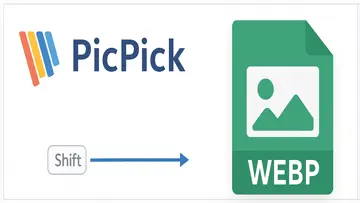Safe to install
HEVC: The Future of Video Compression
HEVC offers superior video encoding efficiency, enabling high-quality streaming and storage solutions with reduced file sizes, making it essential for modern media consumption.
HEVC, or High Efficiency Video Coding, is a video compression standard that is used to reduce the file size of video content without compromising its quality. It was developed by the Joint Collaborative Team on Video Coding (JCT-VC), which is a joint effort between the International Telecommunication Union (ITU) and the Moving Picture Experts Group (MPEG).
HEVC uses advanced compression techniques such as improved block size and prediction algorithms, resulting in up to a 50% reduction in file size compared to previous standards such as H.264/MPEG-4 AVC. This makes it an attractive option for video content providers who want to deliver high-quality videos over limited bandwidths or storage capacities.
HEVC is compatible with a wide range of devices, including smartphones, tablets, laptops, and televisions. However, it requires higher processing power compared to earlier compression standards, so some older devices may not be able to decode it properly.
HEVC is a powerful compression standard that enables efficient video delivery while maintaining high quality. Its adoption enables people to stream higher quality video content even with limited internet bandwidths.
Overview
HEVC is a Commercial software in the category Audio & Multimedia developed by HEVC.
The users of our client application UpdateStar have checked HEVC for updates 94 times during the last month.
The latest version of HEVC is currently unknown. It was initially added to our database on 11/13/2020.
HEVC runs on the following operating systems: iOS/Windows.
HEVC has not been rated by our users yet.
Pros
- HEVC (High Efficiency Video Coding) is a video compression standard that offers significantly improved compression efficiency compared to its predecessors like H.264/MPEG-4 AVC.
- HEVC can reduce file sizes without compromising on video quality, making it ideal for streaming high-definition videos over the internet.
- It supports resolutions up to 8192x4320, also known as 8K UHD, enabling playback of ultra-high-definition content.
- HEVC is widely supported by major hardware and software vendors, ensuring compatibility on a variety of devices and platforms.
Cons
- Some older devices may not support HEVC playback due to hardware limitations, requiring transcoding or re-encoding of videos for compatibility.
- Compressing videos using HEVC may require more computational resources and time compared to older compression standards.
- HEVC's licensing terms may involve royalty payments to various patent holders, which can increase costs for developers and users.
FAQ
What is HEVC?
HEVC stands for High Efficiency Video Coding. It is a video compression standard, also known as H.265 or MPEG-H Part 2, that is designed to significantly reduce file size while maintaining video quality.
Why was HEVC invented?
HEVC was invented to address the growing need for higher resolution videos with more complexity in a world where streaming and downloading videos is increasingly popular. It provides much better compression performance than its predecessor, H.264, allowing for smaller file sizes without sacrificing quality.
What are the benefits of HEVC?
The primary benefits of HEVC are reduced file size and improved video quality. This allows for smoother streaming and faster downloads, especially on limited bandwidth connections. In addition, higher resolutions and frame rates can be supported with less buffering and data usage.
What kind of devices support HEVC?
Most modern devices support HEVC decoding, including smartphones, tablets, computers, and smart TVs. However, older devices may not support it due to hardware limitations, so it is important to check the device specifications before relying on HEVC.
Is HEVC royalty-free?
No, HEVC is not royalty-free. Patent holders can charge licensing fees for the use of their patents related to HEVC technology. However, some companies offer royalty-free licenses for certain use cases, such as non-commercial use or use in open-source software.
How much can HEVC compress video files?
HEVC can typically compress video files by around 50% compared to H.264 without any quality loss, and up to 75% with slightly reduced quality. However, the level of compression depends on the specific video content and encoding settings.
What is the difference between AVC and HEVC?
AVC, also known as H.264, is an older compression standard that has been widely used in video streaming and broadcasting. HEVC is the successor to AVC/H.264 and provides significantly better compression performance while maintaining or improving video quality. This allows for higher resolutions, frame rates, and bit depths without sacrificing file size or quality.
Can HEVC be used for live streaming?
Yes, HEVC can be used for live streaming, but it requires hardware and software support for real-time encoding and decoding. This can be more challenging than using HEVC for pre-recorded video content, but it can provide significant benefits for high-resolution or high-frame-rate live streams.
What are some common problems with HEVC playback?
One common problem with HEVC playback is that it requires more processing power than H.264, especially for high-resolution or high-frame-rate videos. This can cause playback issues on older or less powerful devices. Another issue is that some software players may not support HEVC natively, requiring additional codecs or plugins to be installed.
What is the future of HEVC?
HEVC is expected to continue to be widely adopted for video streaming and downloading as more devices support it and more content providers use it. However, there are also emerging compression standards such as AV1 and VVC that may eventually provide even better compression performance than HEVC.

Boris Weber
I am an editor at UpdateStar. I started as a support engineer, and am now specialized in writing about general software topics from a usability and performance angle among others. I telecommute from UpdateStar’s Berlin office, when I am not working remote as a digital nomad for UpdateStar. When I'm not analyzing the latest software updates, you can find me exploring new cities, immersing myself in local cultures, and discovering innovative tech trends across the globe.
Latest Reviews by Boris Weber
Installations
Related
4K HDR Video Recorder
Experience Stunning Clarity with 4K HDR Video RecorderCompress Videos & Resize Video
Effortlessly Reduce Video Size with Compress Videos & Resize VideoControl Wifi Sony Camera App
Control your Sony camera wirelessly with the convenience of a simple touch. The application supports a wide range of Alpha and Cyber-shot Sony cameras, allowing you to effortlessly capture images remotely through the app.DaVinci Remote Monitor
Seamless Remote Monitoring With DaVinci Remote MonitorFile Converter to the Formats
Convert many formats easily with our convenient app. You'll be just a few taps away from your desired format. The app offers a wide range of formats for various file types, including images, videos, audio files, and archives.Gyroflow
Gyroflow: Revolutionizing Camera StabilizationApp Store
with UpdateStar freeware.
Latest Reviews
|
|
oMega Commander SP1
oMega Commander SP1: Efficient File Management at Your Fingertips |
|
|
Streamer Life Simulator
Get Ready to Stream in Style with Streamer Life Simulator! |
|
|
Marvel's Spider-Man
Swing into Action with Marvel's Spider-Man |
|
|
clickSign x32
Effortlessly Streamline Your Document Signing with clickSign x32 |
|
|
Mercusys MW300UH Driver
Reliable Connectivity with Mercusys MW300UH Driver |
|
Surveillance Viewer IPC UN Miniature
Compact Yet Powerful: The IPC UN Miniature Surveillance Viewer |
|
|
UpdateStar Premium Edition
Keeping Your Software Updated Has Never Been Easier with UpdateStar Premium Edition! |
|
|
Microsoft Visual C++ 2015 Redistributable Package
Boost your system performance with Microsoft Visual C++ 2015 Redistributable Package! |
|
|
Microsoft Edge
A New Standard in Web Browsing |
|
|
Google Chrome
Fast and Versatile Web Browser |
|
|
Microsoft Visual C++ 2010 Redistributable
Essential Component for Running Visual C++ Applications |
|
|
Microsoft Update Health Tools
Microsoft Update Health Tools: Ensure Your System is Always Up-to-Date! |





